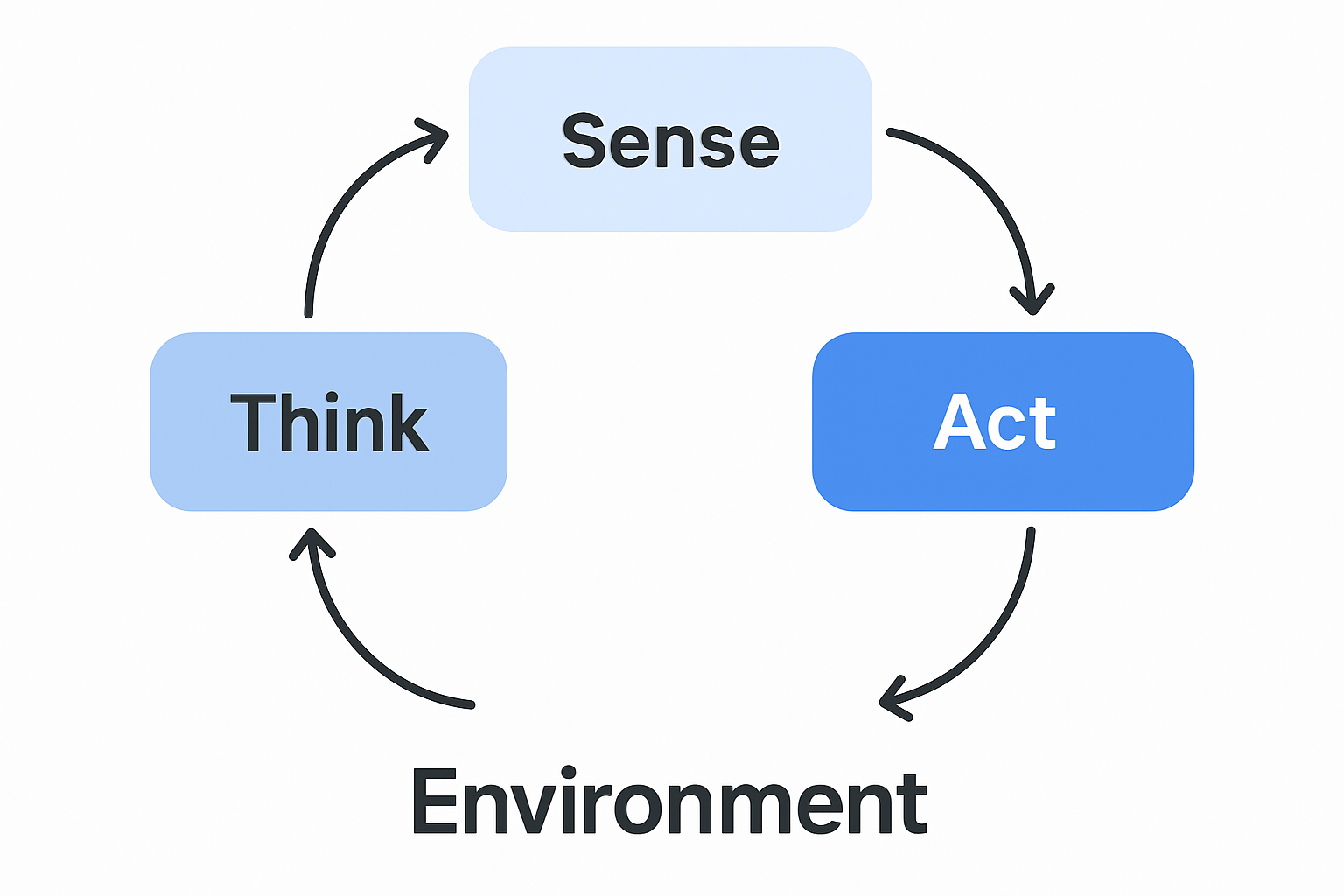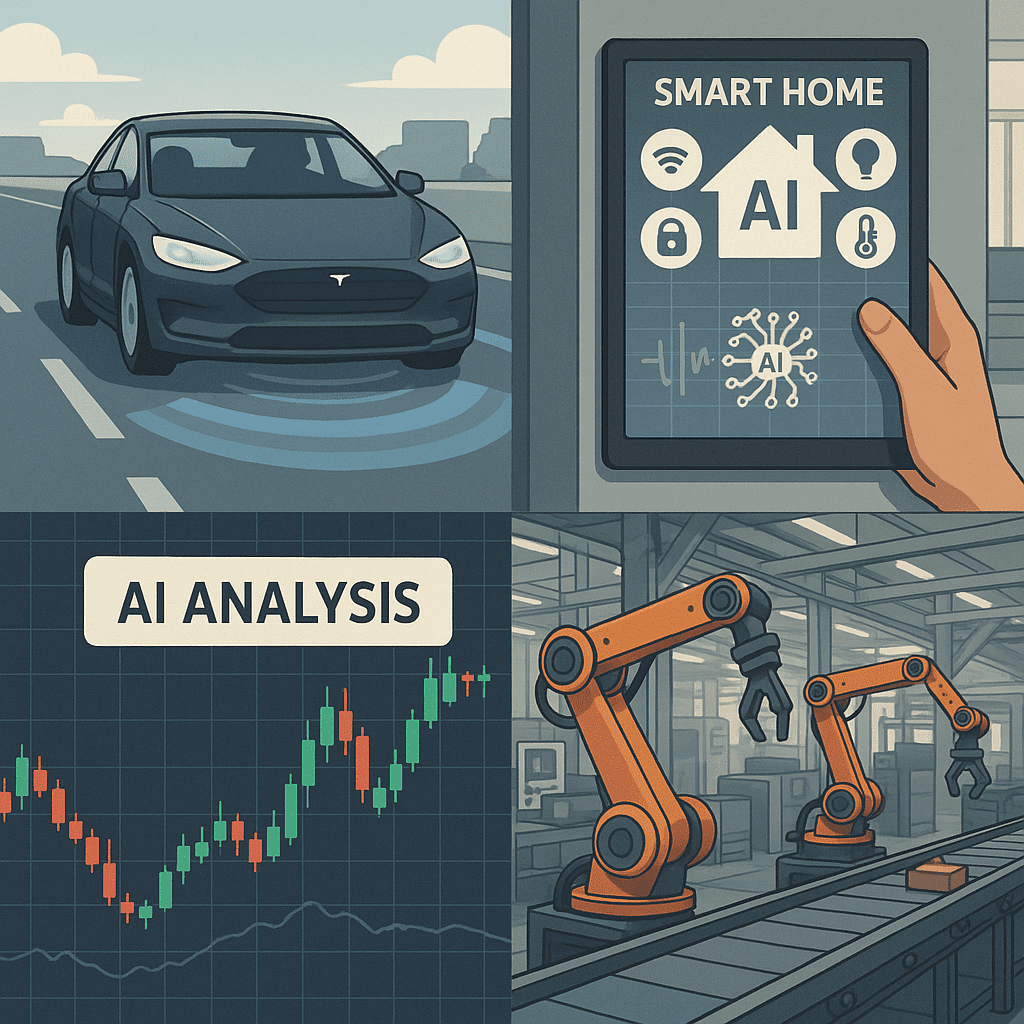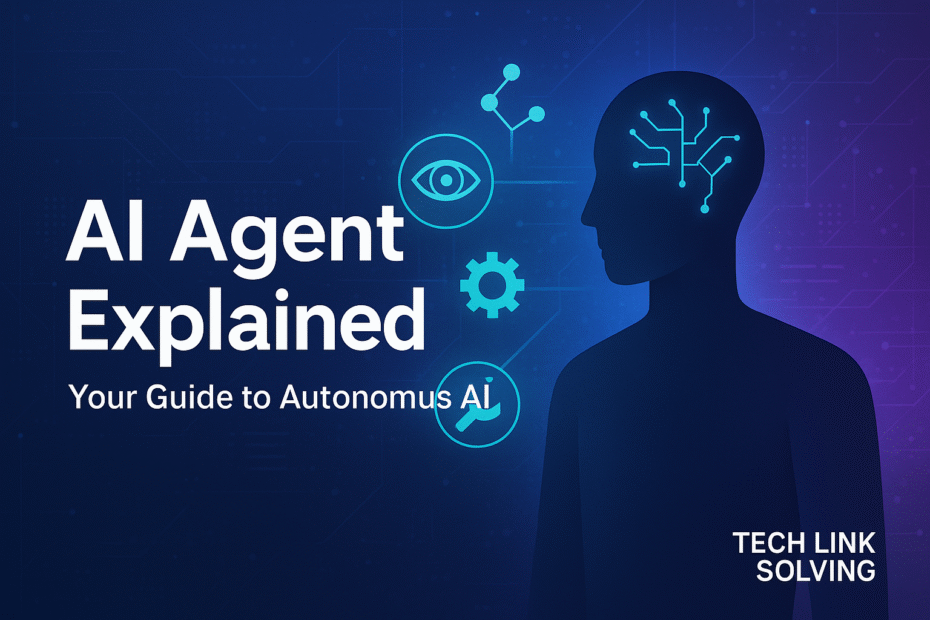I remember a time, not so long ago, when my digital life felt like a relentless game of whack-a-mole. Emails piled up, scheduling was a nightmare, and repetitive online tasks ate into hours I desperately needed for creative work. I’d often think, “If only I had a clone, or better yet, a digital assistant that actually knew what I needed before I even asked.” And then, I stumbled upon the fascinating concept of what is an AI agent.
It was a revelation. Suddenly, the future wasn’t just about smarter tools; it was about truly intelligent entities capable of acting on their own. In this deep dive, I want to share my journey of understanding these remarkable digital beings. We’ll explore their core definition, pull back the curtain on how do AI agents work, differentiate them from their less autonomous cousins, and discover compelling examples of AI agents already making waves in our world. Get ready to rethink how you interact with technology, because the age of the autonomous AI agent is truly here.
Unpacking the Core: What Exactly is an AI Agent?
At its heart, when I think about what is an AI agent, I picture a sophisticated software program or system designed to perceive its environment, make decisions, and take actions to achieve specific goals, all with a significant degree of autonomy. It’s not just following instructions; it’s about proactively working towards an objective.
You might have heard the term ‘intelligent agents’ before, especially in academic circles. Essentially, an AI agent is a specific type of intelligent agent. What sets them apart from simpler ‘AI bots’ is their ability to operate independently, often learning and adapting over time. They don’t just react; they think, plan, and execute. My experience has shown me that this distinction is crucial – it’s the difference between a glorified script and a genuinely proactive digital assistant.

The Inner Workings: How Do AI Agents Work?
Understanding how do AI agents work really clarifies their power. Imagine them as having several key components. First, there are sensors, which allow them to perceive their environment – this could be anything from data streams to user inputs or even real-world physical surroundings. Then, they have a processing unit, often powered by advanced AI models, that interprets this sensory input, applies a knowledge base, and reasons about the best course of action to achieve its predefined goals.
Finally, they possess effectors, which are the means by which they act upon their environment. This could involve sending emails, executing code, making purchases, or even controlling robotic limbs. The beauty of ‘autonomous AI agents’ lies in this complete cycle: they continuously perceive, process, and act, often without human intervention for extended periods. It’s like having a highly skilled, incredibly focused employee who never sleeps and never gets distracted. I’ve found this framework helps me explain their complex behavior simply.
Beyond Chatbots: AI Agent vs. AI Assistant vs. Chatbot
One common area of confusion I encounter is the distinction between various AI-powered tools. Let’s clear this up: the differences between ‘AI agents vs chatbots’ and ‘AI agent vs AI assistant’ are significant.
A chatbot, at its core, is typically a conversational interface designed to answer questions or perform simple, predefined tasks based on programmed rules or a limited understanding of natural language. Think customer service bots: you ask, they respond, but they rarely initiate complex actions independently. They’re reactive.
An AI assistant, like Siri or Google Assistant, is a step up. They can understand more complex commands and integrate with various services to perform tasks, such as setting reminders or playing music. However, they generally require an explicit command from a user to initiate action. They’re helpful, but still largely command-driven.
An AI agent, by contrast, is truly proactive and goal-oriented. While an AI assistant waits for your command to book a flight, an AI agent might observe your travel patterns, find deals, and even suggest booking a flight to your preferred destination, all without direct prompting, because its goal is to optimize your travel expenses or experiences. They operate within the burgeoning ‘agentic web’, where AI systems can interact with various online services and data sources to complete multi-step tasks autonomously. My perspective is that agents represent the next evolution of AI interaction.
Real-World Impact: Examples of AI Agents in Action
The concept of AI agents isn’t just theoretical; they are already transforming industries and our daily lives. I’ve seen some truly impressive examples of AI agents making a tangible difference:
- Autonomous Vehicles: Perhaps the most visible example. Self-driving cars perceive their environment (sensors), interpret data, make real-time decisions (e.g., brake, accelerate, turn), and execute actions (effectors) to navigate safely.
- Personalized Recommendation Systems: Think Netflix or Amazon. These AI agents learn your preferences, analyze vast datasets of user behavior, and proactively suggest content or products you might like, optimizing for engagement or sales.
- Automated Trading Bots: In finance, these agents monitor market data, identify opportunities, and execute trades based on pre-set strategies, all at speeds impossible for humans. This is a prime example of an ‘AI agent for business’ driving efficiency.
- Smart Home Systems: Beyond simple voice commands, advanced smart home agents can learn your routines, optimize energy consumption based on occupancy and weather, and even proactively adjust settings for comfort and security.
- Supply Chain Optimization: An ‘AI agent for automation’ can monitor inventory levels, predict demand fluctuations, and dynamically adjust logistics to ensure timely delivery and minimize costs. This is ‘task automation with AI’ on a grand scale, impacting entire global networks.
- Customer Service Automation: While basic chatbots handle FAQs, more sophisticated AI agents can resolve complex customer issues by accessing multiple databases, escalating tickets, and even initiating refunds or product replacements autonomously, greatly enhancing the customer experience.

The Upside: Benefits of AI Agents for Business and Beyond
My exploration into AI agents consistently highlights their profound advantages. The ‘benefits of AI agents’ extend far beyond mere convenience, offering transformative potential for both individuals and enterprises:
- Unprecedented Efficiency and Productivity: By automating complex, multi-step processes, AI agents free up human capital for higher-value, creative tasks. This ‘AI agent for automation’ capability means businesses can achieve more with existing resources.
- Reduced Errors and Improved Accuracy: Unlike humans, AI agents don’t get tired or distracted. They follow predefined rules and learn from data, leading to significantly lower error rates in repetitive or data-intensive operations.
- Scalability: Digital AI agents can be deployed and scaled rapidly to handle massive volumes of tasks, making them ideal for businesses experiencing rapid growth or needing to process large datasets.
- Enhanced Personalization: As seen in recommendation systems, AI agents can deliver highly tailored experiences by continuously learning and adapting to individual user preferences, leading to greater satisfaction and engagement.
- Cost Savings: Automating tasks traditionally performed by humans can lead to substantial reductions in operational costs, making an ‘AI agent for business’ a strategic investment.
- 24/7 Availability: AI agents don’t require breaks or sleep, ensuring continuous operation and support, which is invaluable for global businesses or critical systems.
I’ve personally witnessed how the strategic deployment of AI agents can revolutionize workflows, turning bottlenecks into streamlined processes. The potential for ‘task automation with AI’ is truly limitless.
The Future is Agentic: Your Next Step
We’ve journeyed through the intriguing world of AI agents, uncovering what is an AI agent, understanding how do AI agents work, distinguishing them from other AI forms, and marveling at the diverse examples of AI agents already shaping our reality. The transformative benefits of AI agents – from boosting productivity through ‘AI agent for automation’ to revolutionizing business operations – are undeniable.
For me, the key takeaway is this: AI agents are not just tools; they are evolving partners capable of autonomous action towards a common goal. They represent a significant leap in our interaction with artificial intelligence, moving us from command-and-response to proactive and intelligent assistance. The ‘agentic web’ is no longer a distant dream but an emerging reality that promises to redefine how we work, learn, and live.
As you reflect on this evolving landscape, what tasks do you envision an AI agent transforming in your daily life or business? Share your thoughts and let’s continue this conversation about the future of intelligent autonomy!
